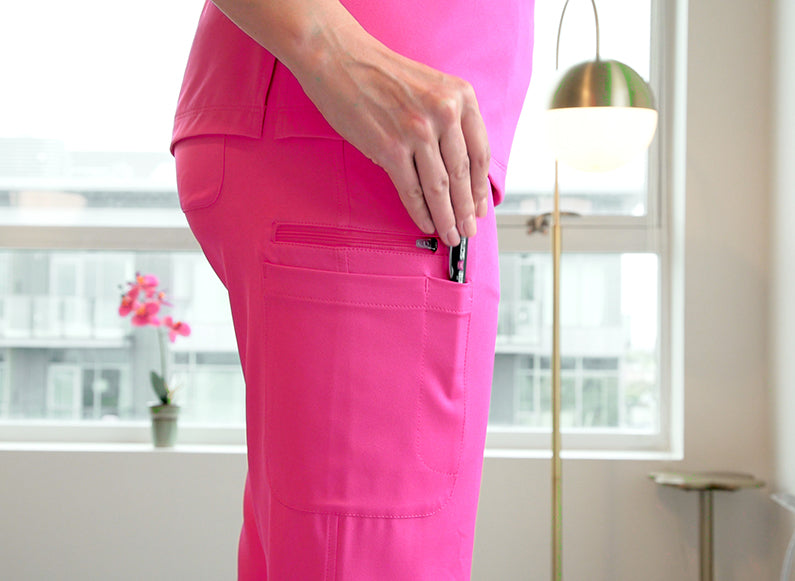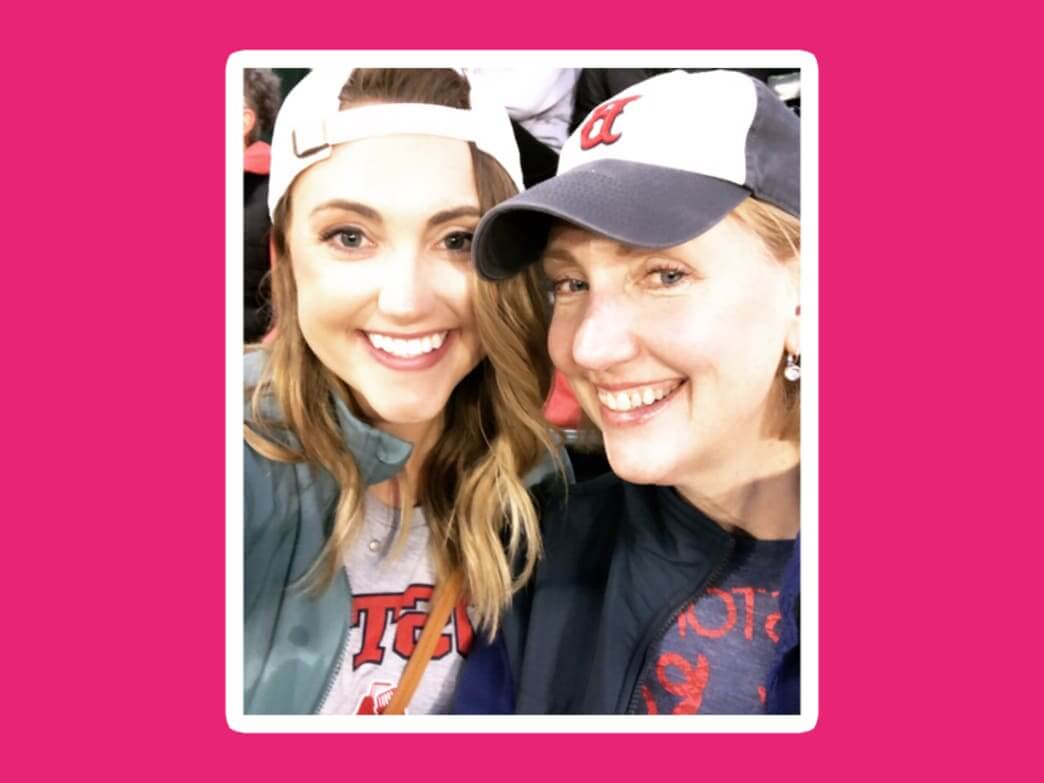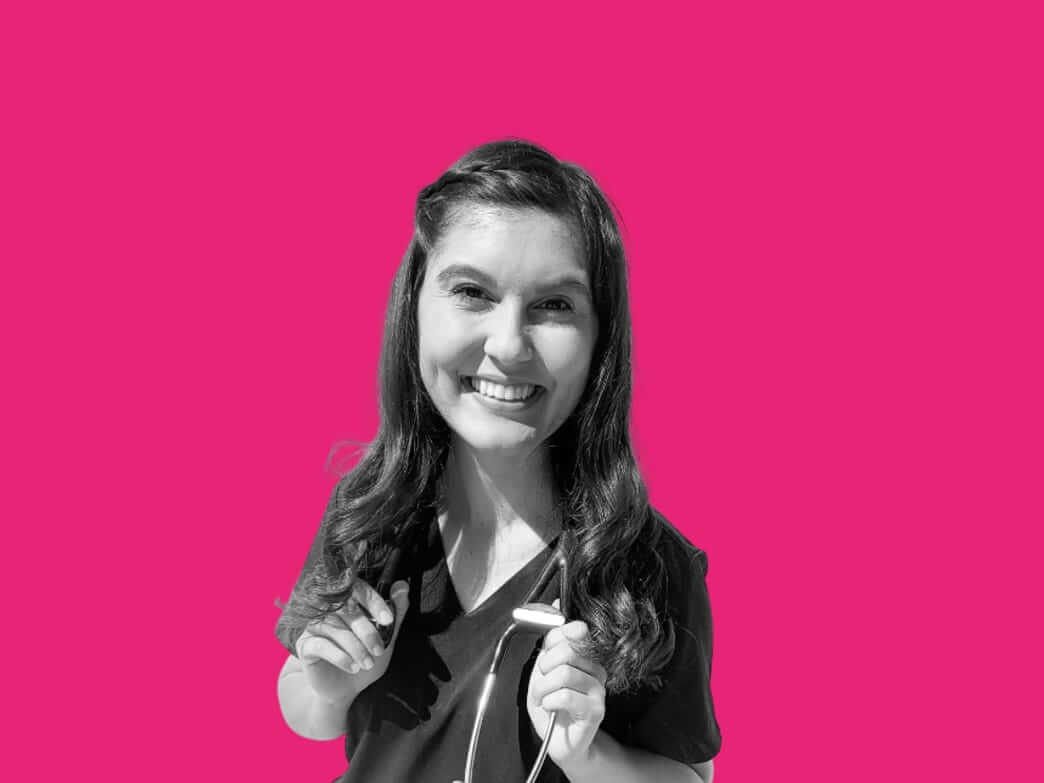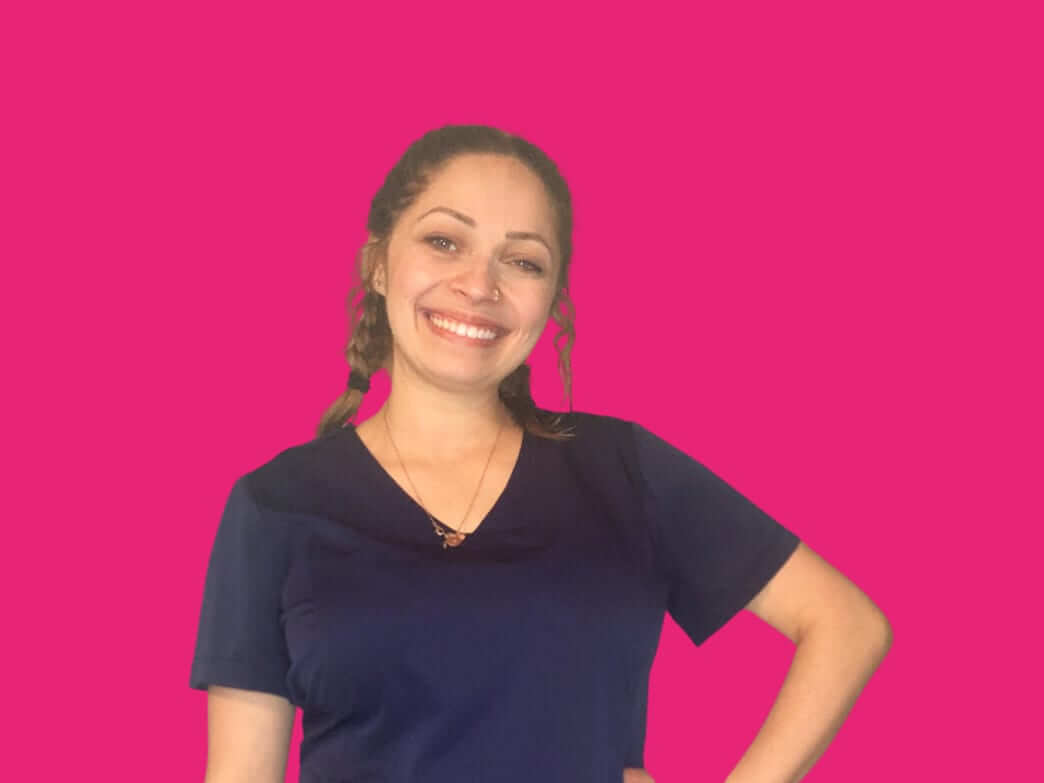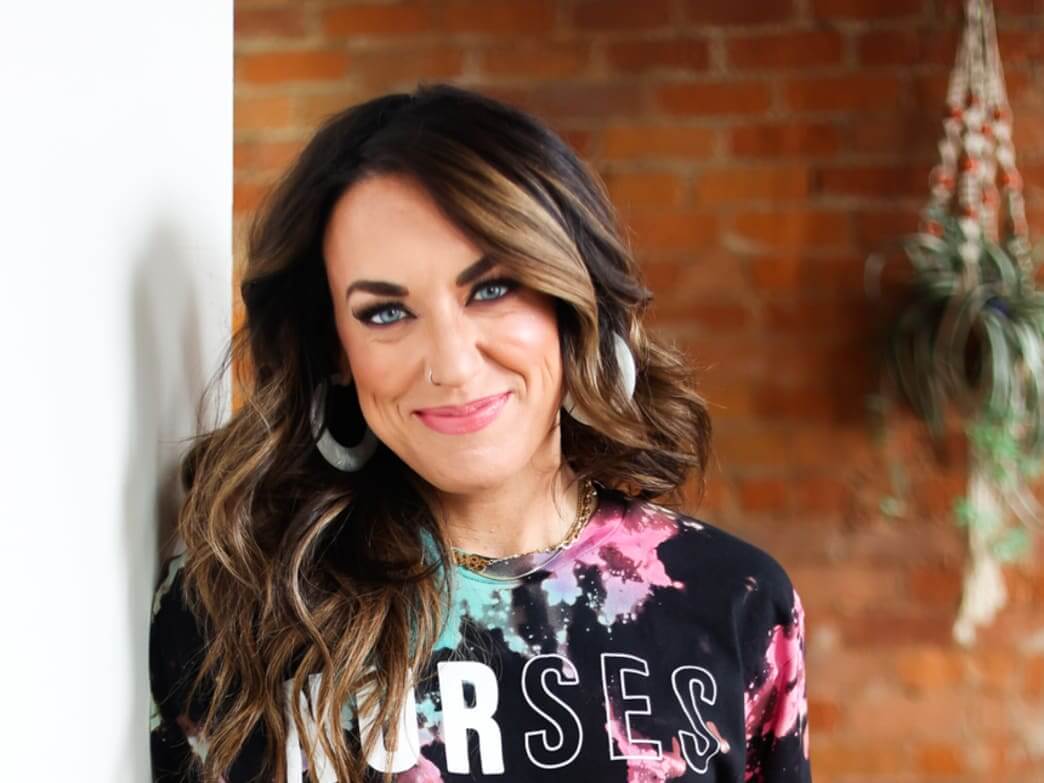Born and raised in the Boston area, Anne and Lauren Wilson are a caring mom and daughter nursing duo who both work at the same hospital. Both deployed to their hospital’s COVID response early on in the pandemic, Anne and Lauren share their experiences and insight into nursing and self-care.
Anne, what led you to nursing?
Anne: When I graduated from high school I wasn't quite sure what I wanted to do. I was a receptionist for a few companies and I also did some waitressing. It got to the point where I knew I did not like either of those roles so I went to nursing school. At first I earned a two year associates degree and then I went on to get my bachelor's degree a year after becoming a nurse. Nursing was definitely something I had thought about in high school, but I wasn't quite ready to go straight into school. I am so proud of my daughter Lauren, she was able to go right from high school and get her degree. She became a nurse and was responsible for other’s lives at the age of 22.
Most of my career at Brigham and Women's Hospital was in cardiac surgery ICU, and I found that it could be quite demanding. For the past four years, I transitioned to working on digital cardiology procedures and it's a little more forgiving on your body. The patients aren't as sick. They're coming in for a daytime procedure, so they're sick, but they're not as critically ill as some of the patients that I saw in the ICU.
Lauren, what led you to nursing and working at the same hospital as your mom?
Lauren: Growing up, I was always coming in and out of the hospital visiting my mom at work. Brigham is an outstanding world renowned hospital. When I was graduating college, I knew I was going to take whatever job I could get. Brigham was always at the very, very top of my list because of all the experience that I had with my mom. I was also lucky enough to get a job as a nursing assistant in college and that helped to open up the door for a RN position. By the time I started full time, I already knew I would be working at a hospital where I felt connected to my coworkers.
You both worked in the COVID-19 response unit at Brigham. What was that like?
Lauren: I give more kudos to my mom because she was pulled out of her procedure area to go back to working in an intensive care unit where she hadn't worked in a few years. She not only had to navigate COVID, but navigate being an ICU nurse again.
Anne: The most challenging part of it for me was when Lauren was working on that unit first in the beginning of the pandemic. I was very worried because it was the unknown and I was just so concerned. I was worried that Lauren would get COVID but once I got deployed there too I got a better understanding. I know we're safe and we're protected by a lot of regulations and policies. My daughter and I were able to talk with each other about what we were experiencing and that was a blessing. One of the most amazing things about being deployed to the COVID response unit was that I I got to see so many people that I've worked with over the years. I have worked at Brigham for close to 30 years now and to be able to work side by side nurses that I started my career with or had not worked with for 10-15 years was amazing. We all worked really efficiently and I think it really helped us all get closer together as the nursing staff.
Did you ever share patients on this unit?
Anne: Since the whole building was COVID, I asked not to be put on the same floor as Lauren but we were doing the same work. We both were caring for the same type of patients, just in different ways. We kept different caseloads, it is better that way. I always thought that if a patient or someone was yelling at her hat I would get very upset so we always try to keep a little separation!
We were not aware at the time but there was one patient a while ago who I took care of pre-op and my daughter took care of post-op. This patient in particular has always stuck out in both of our minds. She unfortunately passed away. She was the sweetest woman. It was nice that I was able to take care of her before her surgery and then Lauren was able to take care of her after. , We both really bonded with her and her family. It was nice to know she was in good hands since she was with us for so long. Things didn't work in her favor, but I feel like her family really was able to have comfort in the fact that like good nurses were caring for her. It was a tough one.
Lauren: There are a lot of success stories at Brigham. In the ICU, unfortunately, that is not always the case. In my unit, we're taking care of the sickest patients around.
What nurse wisdom have you earned from your mom?
Lauren: I've always admired my mom’s hard work and dedication to the field of nursing. I feel like I have that but I am not as dedicated as my mom. She worked night shifts for almost 20 years while raising kids and taking care of a family. I can't even do one night shift without complaining. I've always really admired that about her. My mom always does what she needs to do and doesn't ever complain about it. She just gets it done. I have always really admired that and try my best to do that myself.
In terms of wisdom, she is really good at compartmentalizing her work life and home life. She taught me that a new day is always coming. If i've had a hard day, I try to take her advice and shake it off. I go home, take a shower, relax a little, watch some TV and get ready for a new day. It's really easy to take your workload home with you emotionally. My mom was always able to leave it at the door. I think it definitely comes with experience and I sometimes still have a hard time with it.
Anne: At this point in our life, we support each other. Lauren usually calls me every day after her shift just to debrief. We will talk about what happened, what she did, what she could have done if she is asking for advice. That’s just the way nursing is, it is not just us. Talking with other nurses is how you can grow and become a better nurse each day.
Anne, as an experienced nurse what advice do you have for Lauren and the new wave of nurses to avoid nurse-guilt?
Anne: I think you need to talk about nurse-guilt with another nurse, your mother, a friend. Sometimes the people at home don't get it so I do recommend talking to other nurses. At this point in our life, Lauren and I support each other. Lauren usually calls me every day after her shift just to debrief. We will talk about what happened, what she did, what she could have done if she is asking for advice. That’s just the way nursing is, it is not just us. Talking with other nurses is how you can grow and become a better nurse each day.
Nurses need to know they are not going to be able to fix everything even though you really want to, and just to know that you did the very best that you could. I try to reinforce with Lauren that when something goes wrong, it's a learning experience. It is not necessarily that you did something wrong, the situation went wrong and you will know how to handle it the next time.
Have you learned anything from Lauren?
Anne: Absolutely! She's dedicated and I'm actually in her space a lot of the times with my job so I get to actually see her working. The way she talks to her patients is something I can learn from that. So many of my coworkers will tell me that Lauren is such a good nurse and let me know when they get to work with her or meet her for the first time. It always reinforces what I already know, Lauren is an exceptional nurse. It is so special to get to hear that from different people throughout the hospital.
Let’s talk about self-care! How important is self-care?
Anne: For me, self-care is a newer practice. The older nurses are often not taking care of themselves as they should. Lauren and the younger nurses are better at that. I don't know if it's the generation they grew up in but they are better at taking care of themselves. Lauren has to teach me about self-care!
Lauren: I think now more than ever, making self-care a priority is so important. At the start of the COVID-19 pandemic, a lot of things got pushed aside. Us nurses, we are often overworked and do not have our usual outlets to de-stress during the pandemic. We were not taking care of ourselves the way we should have. People are starting to see the repercussions of that. That's why I think, after a very long time of not doing that, self-care is now becoming a forefront issue.
